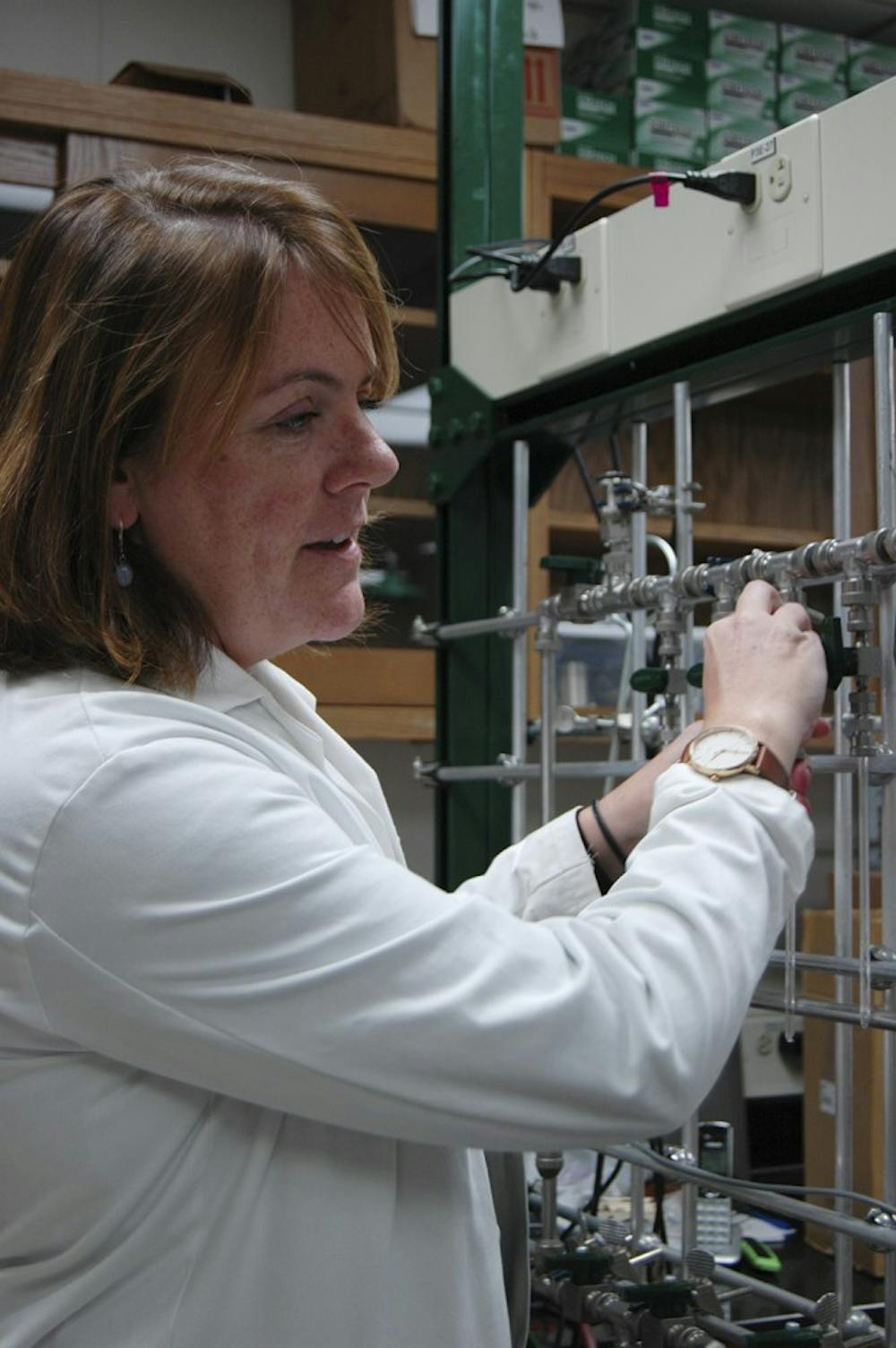Two thousand miles from the nearest hospital, USC professor Lori Ziolkowski spent the beginning of 2017 in Antarctica under some of the most extreme conditions on Earth, studying the environmental limits of life.
Her trip was a very international affair. She took a Russian military plane from Cape Town, South Africa to Antarctica and was then flown by Canadians in a small plane “circa 1950” to the station she stayed at.
At the station in Antarctica, there were mainly Belgians, French and Swiss.
“The operating language was in French ... then they kind of converted when we arrived to try speaking English, not everybody could, so language was a problem for a little bit,” Ziolkowski said.
In a place that is in total darkness for half of the year, with well below freezing temperatures, and with no "inputs" such as aerosols or trees, the biochemistry, geochemistry and climate change expert wanted to know how it is possible for microbes to survive under extreme circumstances.
Ziolkowski plans to answer this question using a €150,000 grant from the prestigious Baillet Latour Fellowship. This award is given to one scientist every two years, and Ziolkowski is the first non-European and first female winner.
Ziolkowski describes Antarctica as, “a sheet of ice over a continent. Some places there is ocean underneath the ice and most of it is not touching the ocean.” However, she warns, Antarctica as we know it is changing. As the climate warms, open lakes are beginning to appear in sub-freezing temperatures allowing for new ecosystems to develop.
On her trip, she unexpectedly came across one of these “open lakes” where she collected many samples.
“There was no ice covering the lake and there was this ... kelp-like material, so macroalgae, and it was just really wild,” Ziolkowski said.
The applications of Ziolkowski’s work in Antarctica could reveal new information about how and why life is possible even in the harshest of environments, even other planets like Mars.
“The closest we can get to such an extreme environment [as Mars] is going somewhere like this,” Ziolkowski said.
Ziolkowski first became interested in research during high school. She knew she was not a book learner, but she took part in a co-op program where she thrived with hands-on experience in research very similar to what she does now. As a professor, she encourages undergraduates to reach out to professors whose research interests them and ask to get involved.
Third-year marine science student Peyton Moore began working in Ziolkowski’s lab in the fall of her first year. She learned about Ziolkowski’s work from the Marine Science department's home page and set up a time to meet with her. They have been working together ever since.
In the lab, Moore found an opportunity to gain practical experience, but she also made a valuable personal connection.
"Working with Dr. Z has been one of the most impactful experiences on my time at USC thus far," Moore said. "Not only have I gained real world experience in a research laboratory, but I have also gained a mentor that has helped me to grow as an individual. Dr. Z has pushed me intellectually, but even more importantly she has connected me with possible role models in my field and helped me to better define my career goals.”

